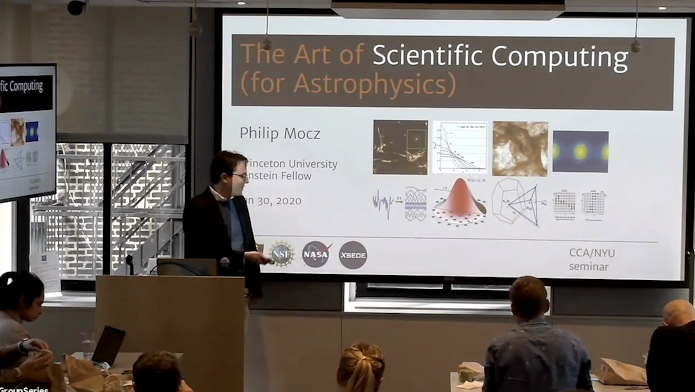CCA Special Seminar: Philip Mocz
Title: The Art of Scientific Computing (for Astrophysics)
Abstract: Physical equations have their own sets of symmetries, invariants, and conserved quantities. In addition, in astrophysical contexts, systems often have many-orders-of-magnitude dynamic range and may experience supersonic speeds or discontinuities. In developing accurate, robust, and efficient scientific computing methods for high-performance simulations, one is faced with the challenge of how to discretize the equations to represent them on a computer and still maintain as many of the physical properties of the equations as possible (which typically leads to reduced numerical error and more reliable code behavior). In this talk, I will describe a variety of modern numerical techniques which I have developed and implemented in my research. These include (1) spectral methods that solve fuzzy dark matter and maintain the unitary nature of the equations, (2) a smoothed-particle hydrodynamics formulation of quantum mechanics, (3) moving-mesh finite volume methods for magnetohydrodynamics that maintain the divergence-free condition on the magnetic field and have Galilean-invariant truncation errors, and (4) collisionless (Vlasov-Poisson) dynamics on an integer lattice that obeys the Poincare recurrence theorem. This talk is meant to highlight the creativity that is involved in inventing new numerical methods, and demonstrate their usage in astrophysical applications.
January 30, 2020
Philip Mocz: The Art of Scientific Computing (for Astrophysics)

By clicking to watch this video, you agree to our privacy policy.